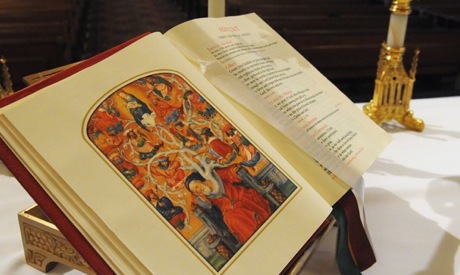There is deep division in the Church over the new English version of the Mass, with priests and religious particularly critical, according to an online survey of 5700 Catholics conducted by the London Tablet.
More than a year after the new Mass translation was introduced, 70 per cent of the clergy who responded said they wanted to see the text revised.
Catholics in the United Kingdom and Ireland were more critical than their counterparts in the United States.
New Zealand responses were not tabulated separately, but Australian responses were. Of these, 60 per cent said their attitude was: “Before it was introduced I was apprehensive about it and I still don’t like it.”
There was strong agreement by 56 per cent of the Australians with the statement “Some of the florid language is obsequious and distracting” and 66 per cent did not like “begotten, not made, consubstantial with the Father”.
Overall, 47 per cent of respondents said they liked the new Mass and 51 per cent said they did not. There was an almost equal split between those who considered the new translation more prayerful and reverent (48 per cent) and those who did not (49 per cent).
There was a significantly high 19 per cent of respondents (heavily weighted towards the US) who expressed a preference for the traditionalist Extraordinary Form over the Ordinary Form of the Mass.
Among priests, 22 per cent preferred the new translation. There was strong opposition to “consubstantial” (67 per cent), “for many” (63 per cent), “chalice” (61 per cent), and “through my fault, through my fault, through my most grievous fault” (60 per cent).
Commenting on the results, Cardinal George Pell of Sydney, chairman of the Vox Clara advisory committee on liturgical translations, said it would be misleading to speak of a polarisation.
He said it was interesting that those who were apprehensive before the texts appeared generally felt their fears were justified.
Cardinal Pell said the new text “escapes the banalities of some of the older translation” and he recommended “patience and repetition” to produce a spiritual deepening.
Source:
Image: Washington Post
Additional readingNews category: World.




